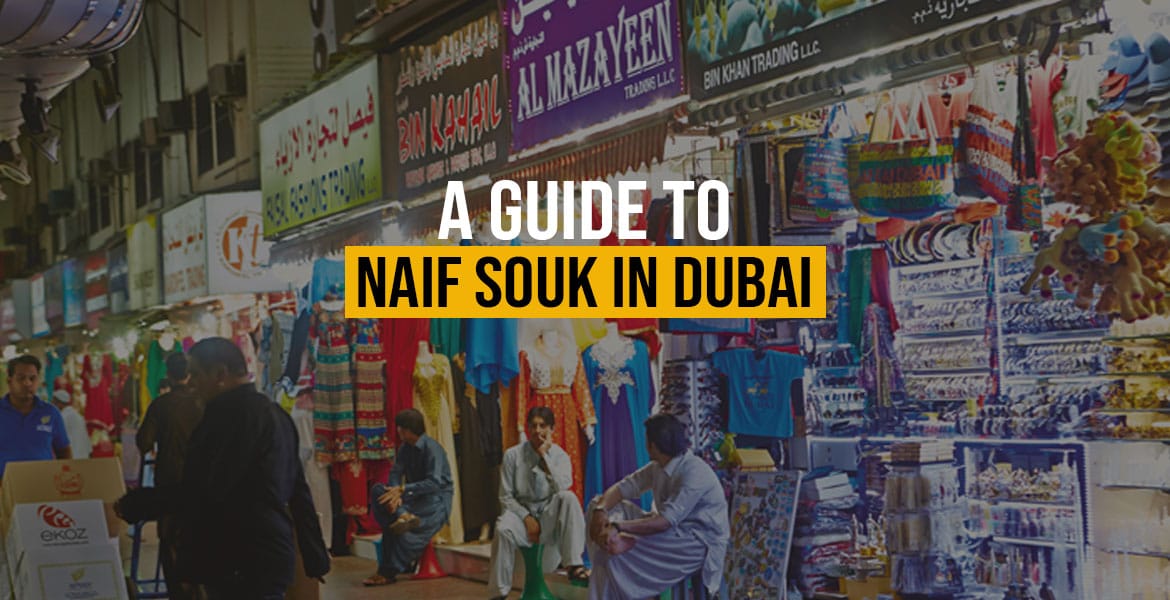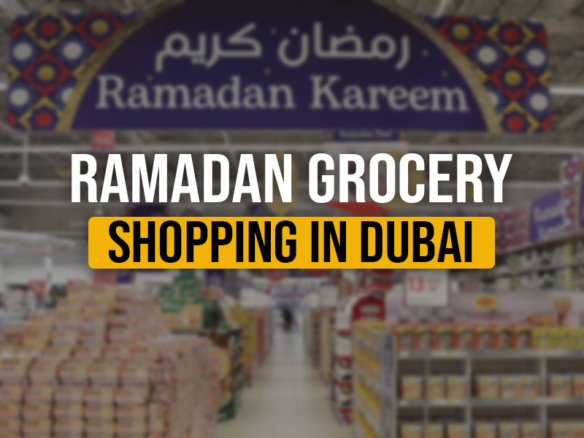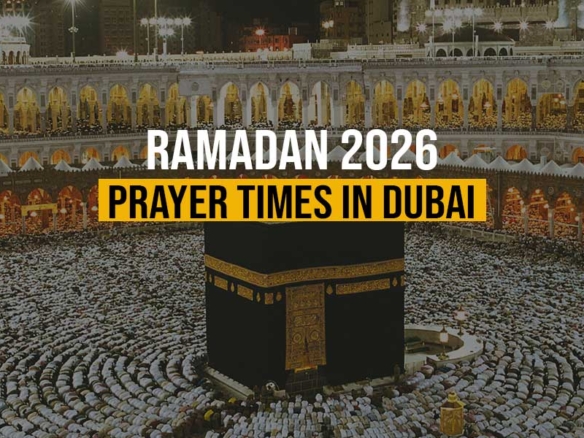Naif Souk is one of Dubai’s oldest and most lively traditional markets. It is concealed in Deira. This crowded market is far from the city’s high-end businesses yet boasts history, culture, and fantastic discounts. Naif Market is a treasure mine for both locals and tourists. It has everything from traditional Emirati clothing and beautiful textiles to fragrances, electronics, and souvenirs.
The souk is located on the famous Naif Street and Naif Road in Dubai. It shows how the city used to be a commerce hub, combining old and new. We will tell you all you need to know about Souk Naif in this guide, including what to buy, where to park, when to go, local attractions, and pro shopping advice. This will make sure your visit is smooth, fun, and unforgettable.
1. Historical Background
Naif Souk in Deira, Dubai, recalls its commerce center past. Once a camel market, it now sells garments, toys, and leather. The souk became more important over time and was a big part of trade in the area.
In April 2008, a terrible fire at Naif Souk destroyed more than 180 businesses. The souk was fixed up by the Dubai Municipality by 2010. They turned it into a modern building with air conditioning while retaining its old-world beauty. The new building features almost 200 stores and services, including bathrooms, prayer rooms, and elevators that make shopping more fun for guests.
Naif Souk is still doing well now. It sells a lot of different things and shows off Dubai’s strength and cultural diversity. The fact that it has changed from a modest camel market to a large commercial area indicates how the city has developed throughout time.
2. Location and Accessibility
Naif Souk is in the busy Deira area, especially Naif Deira Dubai. You can really get a feel for Dubai amid the souk’s small lanes and historic buildings, something modern malls cannot provide. Naif Road Dubai, and Naif Street are two of the numerous important roads that lead to the market. Naif Market is a popular place for both visitors and residents to go because these streets are the main highways through Deira and are dotted with shops. You can easily reach Naif Souk from Bur Dubai and other parts of the city by bus or train.
The Green Line’s Baniyas Square is the closest Dubai Metro stop. It takes about five minutes to walk there. There are a lot of buses that go through the region, such as routes 27, 4, X13, and C1.. Are you driving? There is parking at Naif Souq; however, it could get busy during peak shopping times. There is hardly much parking, thus it is best to use public transportation.
Centrally located near Naif Police Station and Naif Park. These landmarks help navigate. Visit the adjacent Gold Souk and Dubai Creek for entertainment. You should go to Naif Souk if you adore Dubai culture. It is easy to get to and in a fantastic location.
3. Naif Souk Timing
| Day/Occasion | Opening Hours | Notes |
| Regular Days | 8:30 AM – 11:30 PM | Shops typically open throughout the day for both residents and tourists. |
| Weekends & Holidays | Most shops open at 9:00 AM | Crowds increase significantly after 4:00 PM. |
| Fridays | Open after 4:00 PM (post-prayer) | Many shops stay open late into the night. |
| Ramadan | Varies – Closed for Iftar, reopen afterward | Timings may differ; shops usually close for Iftar and resume later. |
| Festivals/Special Days | Varies | Recommended to check local calendar or call shops in advance. |
Know Naif Souk timing for a relaxing shopping trip. Residents and guests can shop daily. The visit timing for Naif Souk is 8:30 AM to 11:30 PM. Any time of year in Deira, the souk is busy. Most stores open at 9:00 AM on weekends and holidays and get packed after 4:00 PM.
Ramadan and other festivals may change Naif Souk Market timings. Ramadan souks close for Iftar and reopen later. Checking the local calendar or calling establishments during these hours might inform visitors. The Friday prayer schedule changes the hours. Souk Naif stores usually open after prayer at 4:00 PM and stay open late. Locals and visitors fill the streets and alleys on Friday nights. The varied hours make Naif Souk easy to fit into any schedule. The souk welcomes you morning or night to find a deal. Its culture, history, and business are distinct.
4. Shopping Experience
Entering Naif Souk is like entering a time capsule where past splendor meets modern affordability. Naif Market is popular for its many merchants and pleasant atmosphere. You may find a lot of traditional garments and new electronics at prices that will not break the bank. There are a lot of small shops and stalls along narrow walkways throughout the market. This makes it feel busy but organized.
a. Traditional Clothing
Souk Naif has a lot of traditional attire, which is one of its best features. You may have abayas, jalabiyas, kanduras, and shaylas in every color or fabric you can dream of. Some stores sell clothes that are already manufactured, while others offer tailoring services that let you change the clothes you buy. This is why many people, both locals and visitors, come here to buy true Emirati garments.
b. Perfumes and Oud
Arabic scents and oud regularly fill the air at Naif Deira Dubai. You can select from oil-based smells, bottled perfumes, and incense sticks. You may even create your perfumes in some stores, so you can have a scent that is all your own.
c. Accessories, Electronics & More
There are a lot of different kinds of things, like purses, watches, scarves, cell phones, and accessories. You may get a variety of products here, such as cheap Bluetooth speakers and sunglasses. They are generally cheaper than what you would find at big malls. You never know what you will find when you shop on Naif Street, which makes it a lot of fun.
You can do more than just shop at Naif Souk. You may also learn about the culture, talk to the shopkeepers, and witness a part of Dubai that is still going strong today.
5. Naif Souq Parking
Naif Souk is in a bustling Deira district, making parking difficult. The Naif Souq parking has 98 spaces and charges AED 5 per hour. These places fill up fast, especially during peak shopping hours. The Al Sabkha multi-story car park has more spaces if needed. The nearby Al Manal Center has subterranean parking. When things are busy, it may be challenging to find what you need despite these options.
Traffic is heavy, therefore public transportation is best. The Baniyas Square Metro Station is 8 minutes distant, making the souk accessible. Many RTA bus routes serve the region, making it a great method to get around without driving. The parking in Naif Souq is generally limited. Planning your public transit route could make shopping in this congested Dubai region easier.
6. Dining Options
Visitors can try Dubai’s cuisine after visiting Naif Souk’s colorful shops. Traditional Emirati and foreign restaurants near Naif Souk offer everything for every taste and budget.
a. Local Treats
Naif Souk has many shawarma, falafel, and kebab eateries. These eateries recall local cuisine.
b. South Asian Food
Visitors may get affordable, excellent biryanis, curries, and tandoori.
c. International Flavors
Nearby are excellent Japanese, Chinese, and European restaurants. Everyone should find something they like at these places. Deira has various restaurants near Naif Souk for any mood.
7. Nearby Attractions
Naif Market offers more than shopping for first-timers and residents.
a. Naif Museum
The Naif Museum is only a short walk from the souk. It is in one of Dubai’s earliest police stations. This little but interesting museum shows how the police in the city have changed over the years. If you want to learn more about Dubai’s history and how things have changed over time, especially how the police have changed, this is a fantastic location to go.
b. Gold Souk & Spice Souk
The Gold Souk and Spice Souk are both very close by. You may walk there or take an abra ride. The Gold Souk has a lot of lovely gold jewelry that sparkles, and the Spice Souk has herbs, spices, and incense that smell amazing. Both of these are wonderful methods to make your shopping trip in Naif Deira Dubai stay longer.
c. Dubai Creek
Dubai Creek is a quiet place to relax away from the crowded market, right past Naif Street. You may take a traditional abra, which is a wooden boat, across the river and experience the beautiful views of both old and new Dubai. The creek looks especially nice after sunset when the city lights shine off the water.
d. Cultural Spots and Parks
Go to Naif Park, which is close by, for a pleasant rest. A quiet grassy location to rest your feet or eat a snack. The Deira Clocktower and Heritage House are nearby and worth visiting for architecture and Emirati culture.
Naif Souk is more than simply a market; it is a route to some of the most beautiful and historic locations in Dubai.
8. Shopping Tips
Naif Souk is the best area to shop in Dubai. It has a lot of culture and a lot of deals, so it is a perfect spot for both cultural lovers and bargain hunters. But if you follow a few simple tips, you can make the most of your vacation to Souk Naif.
9. Bargaining Is Expected
One of the best things about Naif Market is that you can bargain. Most of the time, store owners charge you more because they anticipate you will try to get a better deal. It is normal to haggle; it is part of the culture. Being nice and pleasant can frequently get you a good deal.
10. Carry Cash
Some stores take cards, but most still prefer cash. Having a lot of little UAE Dirham bills will make transactions go more smoothly and help you haggle. It is also useful for getting food on the street or paying for parking at Naif Souq if you need to.
11. Dress Modestly
Naif Deira, you should dress modestly in Dubai to respect the local culture. Light, flowy attire is suitable for the moderate temperature.
12. Explore Before You Buy
Before buying, shop around because many places sell the same products. Try not to buy something immediately. Compare costs and quality.
Go to Naif Souk for more than good pricing. You are having fun, talking to people, and seeing a relatively unchanged portion of Dubai.
Eastern Housing UAE: Supporting Smart Investments Near Dubai’s Cultural Hubs
When traveling in the traditional areas, such as Naif Souk, it is interesting to mention how Dubai manages to mix history with a contemporary urban landscape. Eastern Housing UAE presents well-considered rental and off-plan residential developments suitable to first-time buyers and experienced investors.
Known to be rather transparent, offering on-time delivery and customer-centered services, they are strategically built in areas that are easily accessible to cultural points of interest such as Deira, Dubai Creek, and the rest. It is a luxury option to choose these properties when one cares about traditions.
Conclusion
Naif Souk, one of Dubai’s most popular traditional markets, mixes culture, business, and community. More than shopping, it showcases historic Dubai in Naif, Deira, Dubai. Every visit to Naif Souk seems like entering a story, from oud-scented passageways to colorful textile, accessory, and electronics stores.
Visitors to this popular attraction on Naif Road, Dubai, and near public transportation include interested visitors and seasoned bargain seekers. Shop for traditional Emirati apparel, affordable electronics, or unusual souvenirs for unrivaled variety and value. Naif Market’s friendly sellers, ethnic appeal, and sensory assault of sights, smells, and noises boost its vibrancy.
Modern malls dominate Dubai’s skyline, yet Souk Naif is real. Those seeking authentic local experiences love its pricing and authenticity. Your journey can be smooth and memorable with good planning, from Naif Souk time to parking or metro use.
Naif Souk is part of the city’s rich past, whether you are visiting adjacent wonders like the Gold Souk and Dubai Creek or eating after a shopping binge. It celebrates Dubai’s history, heritage, and daily life, not just a market. Spend a couple of hours in Naif Souk in Deira next time. You will leave with more than bargains—you will appreciate Dubai’s modern development and thriving side.




Join The Discussion